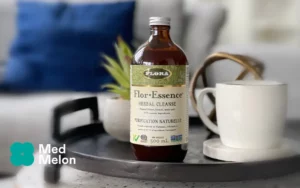Scientific Names of Hawthorn Berry:
Crataegus monogyna Jaquin emend. Lindman, C. laevigata (Poiret) de Candolle and/or other Crataegus species [Fam. Rosaceae]
Forms:
Hawthorn dried berries; Hawthorn berry standardized extract
Traditional Usage:
– Anti-aging
– Anti-inflammatory
– Antioxidant
– Cholesterol
– Digestive Disorders
– Edema
– Free Radical Related Diseases
– Heart Tonic
– Insomnia
– Lowering LDL Cholesterol
– Poultice
– Sedative
– Tonic Herb
– Vascular Disorders
– Water Retention
– Wounds
Overview:
Hawthorn berries, Crataegus spp. [Fam. Rosaceae], are rich in colorful antioxidant flavonoids called anthocyanins and their colorless precursors called oligomeric proanthocyanidins (OPCs). The genus Crataegus includes approximately 280 different species of shrubs and small trees native to North America, Europe and Asia. The ‘haws’ or berries of hawthorn are similar in appearance to other Rosaceae fruit, like rosehips and crabapples, and are equally as edible and nutritious. Our ancestors well knew of the value of hawthorn leaves, flowers and fruits for treating vascular disease. The Greek herbalist, Dioscorides, reported the curative properties of hawthorn for the heart all the way back in the first century. In China, hawthorn was mentioned as far back as 659 A.D. to treat stomach disorders, vascular disease, and scurvy. Chippewa, Ojibwa and other Native Americans also used hawthorn as a heart medicine, gastrointestinal aid, and general tonic and in poultices for treating wounds. Today, hawthorn is one of the most popular herbal medications in central Europe. European as well as Asian health practitioners prescribe hawthorn for treating all different types of vascular disorders. Numerous clinical and pharmacological studies have shown that tonics from the hawthorn plant can dilate coronary arteries thus improving the heart’s blood supply. A recent study proved the efficacy and safety of a standardized extract of fresh Crataegus berries in patients with stage II vascular disease (New York Heart Association criteria) regarding several parameters evaluated. This placebo-controlled, randomized, double-blind trial evaluated hawthorn berry’s effect on exercise tolerance and quality of life in 88 patients over a three-month period. Patients took 25 drops three times daily of the standardized berry fluidextract. According to assessment by the patient, dyspnea decreased significantly with hawthorn, by 11% versus 4% under placebo. Hawthorn tonics also bring significant improvements in several physical parameters including reduced total plasma cholesterol.
Active Ingredients:
Hawthorn berries contain: acetyl-vitexin-4′-rhamnoside; aesculin; aminopurine; ascorbic acid; ash; calcium; carbohydrates; beta-carotene; catechin; citric acid; l-epicatechol; fat; fibre; glucose; hyperoside; lauric acid; linoleic acid; linolenic acid; magnesium; phosphorus; potassium; oligomeric proanthocyanidins; procyanidin; protein; rhamnose; selenium; starch; sugar; tartaric acid; thiamin; vitexin; vitexin-4′-rhamnoside; catechin and epicatechin monomers and dimers; flavone-C-glycosides; other flavonoids including kaempferol, quercetin, apigenin and luteolin; rutin; orientin glycosides; sterols, triterpenes, and amines including phenylethylamine, 0-methoxyphenethylamine and tyramine. [Source: James A. Duke 1992. Phytochemical Constituents of GRAS Herbs and Other Economic Plants. CRC Press, Boca Raton, FL]. Note: Procyanidins, the most common class of condensed proanthocyanidins, consist of chains of catechin and/or epicatechin units linked by 4-8 or 4-6 bonds.
Suggested Amount:
The recommended dosage for hawthorn berry is 0.3-1.0g dried berries or by infusion taken three times daily. Fluid extracts and tinctures of hawthorn berry are taken accordingly. The fluid extract (1:1 in 25% alcohol) is recommended at the dosage of 0.5-1.0ml taken three times daily. Hawthorn berry tincture (1:5 in 45% alcohol) is recommended with the dosage of 1-2ml taken three times daily. Brand name hawthorn berry extracts may also provide dosage recommendations based on standardized levels of active ingredients based on human clinical trials.
Drug Interactions:
Hawthorn extracts have significant cardiovascular effects and therefore may affect existing therapies such as for hypertension, hypotension and cardiac disorders. Hawthorn extracts should not be used to replace existing therapies for cardiovascular disease, unless under the supervision of a qualified medical doctor.
Contraindications:
Hawthorn extracts have significant cardiovascular effects and therefore may affect existing therapies such as for hypertension, hypotension and cardiac disorders. Seek the advice of a qualified medical practitioner before taking hawthorn products in these cases. Hawthorn extracts may have uteroactivity and therefore should not be taking during pregnancy or lactation.
Side Effects:
When taken accordingly, hawthorn is ideal for long-term use as it generally produces no side effects and has no known toxicity. The minor rare side effects reported in clinical trials using commercial preparations of hawthorn have included nausea, fatigue, sweating and rash on the hands.
References:
Blumenthal M, Goldberg A, Brinckmann J 2000. Herbal Medicine: Expanded Commission E Monographs. Copyright American Botanical Council. Publ. by Integrative Medicine Communications, 1029 Chestnut Street, Newton, MA 02464. Pp. 182-192.
Newall CA, Anderson LA, and Phillipson JD. 1996. Hawthorn. In: Herbal Medicines. A Guide for Health Care Professionals. The Pharmaceutical Press, London, pp. 157-159.
Rietbrock N, Hamel M, Hempel B, Mitrovic V, Schmidt T, Wolf GK. 2001. [Clinical efficacy of Crataegus berry extract in congestive heart failure NYHA class II]. Arzneimittelforschung. 2001 Oct; 51(10): 793-8. German.
Sticher and Meier 1998: Hawthorn (Crataegus): Biological Activity and New Strategies for Quality Control. In: Phytomedicines of Europe, Chemistry and Biological Activity ed. by Larry D. Lawson and Rudolf Bauer, American Chemical Society 1998, 1155 16th Street, N.W., Washington, D.C. 20036. Pp. 241-262.
Zapfe jun G. 2001. Clinical efficacy of Crataegus extract WS 1442 in congestive heart failure NYHA class II. Phytomedicine. 2001 Jul; 8(4): 262-6.




